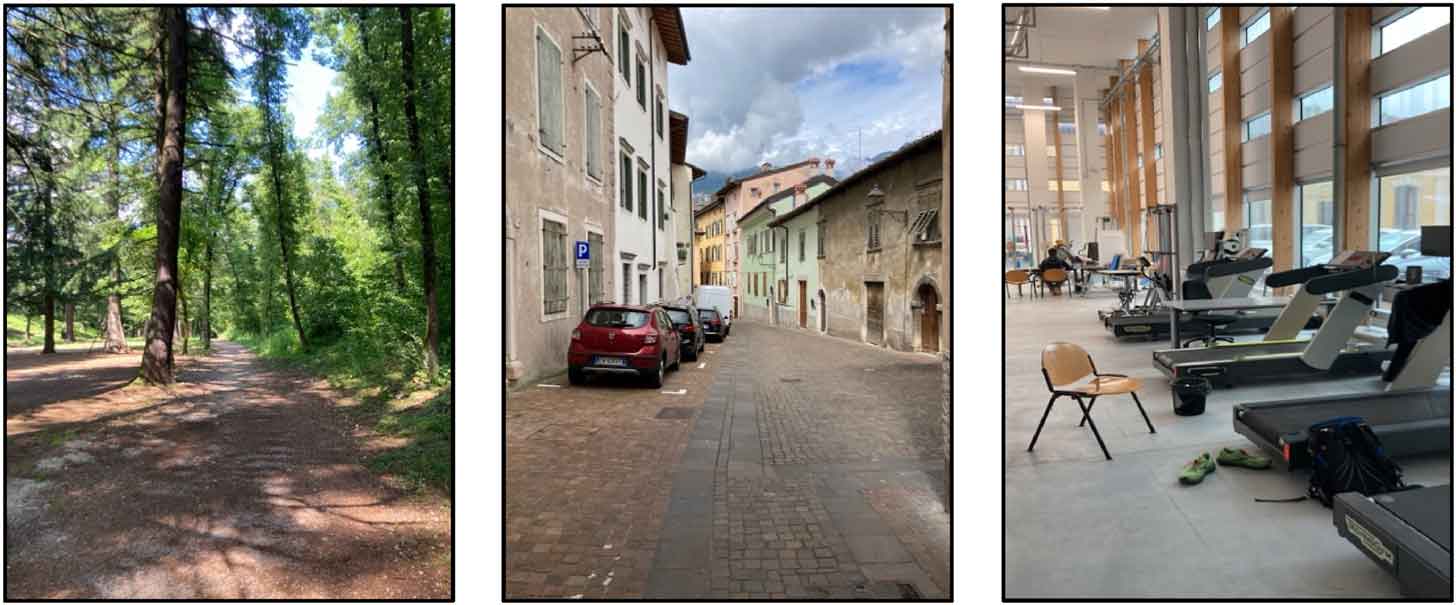Scientists already know that nature is medicine, with some doctors even prescribing visits to national parks as a way to reduce stress and inflammation.
But researchers at the University of Copenhagen and the University of Verona were curious to know how nature compares to other environments when people are already doing something good for their health: Exercising.
“It is not new or surprising that nature is good for our health. But there has been a lack of research examining both the mental and physical effects of exercise in nature compared to the gym and the city,” Stefano De Dominicis, professor in the Department of Nutrition, Exercise, and Sports at the University of Copenhagen, said.
“Our study shows that nature is superior to the other two environments in several areas.”
In fact, an hour of brisk walking in the forest, on the beach, or in a green park reduces stress hormones, improves mood, and makes exercise easier to enjoy, the study found.
To achieve these results, researchers recruited 25 young men to participate in the experiment, in which they were required to walk at the same pace in three different environments.

They were placed in a natural area, an urban route, and an indoor fitness facility. After each walk, their mood, stress levels, and physical exertion were measured.
“The participants felt significantly more relaxed and had lower levels of the stress hormone cortisol after walking in nature,” De Dominicis said.
“At the same time, they reported greater joy and less fatigue.”
A major finding is that exercise in nature provided far greater mental benefits than urban and indoor environments, with participants reporting much higher levels of joy, calm, satisfaction, and optimism after working out in the outdoors.
On a physiological level, researchers measured that the participants’ heart rates dropped more quickly after a walk in nature. Additionally, heart rate variability, which shows how well the body’s nervous system goes into recovery, was 20-30% higher than the indoor walk.
Participants also reported lower levels of anxiety, irritation, and boredom after exercising in nature. Boredom levels actually increased after walking indoors, the researchers shared.

“Humans were born in nature and we have undergone most of our evolution in it,” De Dominicis said. “Therefore, it is not surprising that we feel good when we are in it.”
“Our brain loves nature,” a press release from the university added.
Perhaps most exciting for those who struggle to stay disciplined, the participants in the study had a significantly greater desire to repeat their exercise in nature.
“The figures show that nature not only gives a short-term boost to mood — it also reduces negative feelings and increases motivation to continue being physically active,” De Dominicis explained.
This finding could be especially useful in public health applications, with researchers recommending that municipalities consider green spaces in their public health strategies and exercise programs.
“We see great potential in using nature as a driving force for physical activity — especially for those who find it difficult to get started,” De Dominicis said.
While the study concluded that the great outdoors might be the “superior” location for exercise, De Dominicis clarified that no matter where you exercise, you’re doing something good for your health.
In fact, there are other benefits to working out in a gym, like social perks from team sports or small talk at the elliptical. Plus, it’s a reliable place to go when there might be inclement weather.
But, De Dominicis recommended, try to transfer your workout to nature at least once a week.
“The mental and physical benefits seem to be significantly greater when exercising in nature,” he said, “so people can benefit greatly from replacing just one of their weekly indoor workouts with 30 minutes of exercise in green surroundings.”
You may also like: 75% of people more likely to visit nature if ordered by a doctor, finds new 'park prescribing' study
Header image by Markus Spiske/Unsplash



